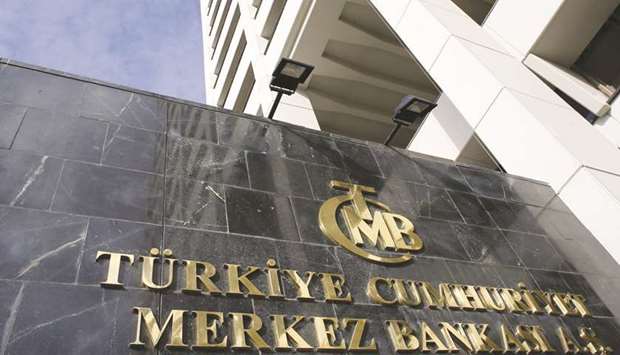Turkey’s central bank lowered its key interest rate by 50 basis points to 10.75% as expected on Wednesday, its sixth consecutive rate cut and the smallest so far in an aggressive easing cycle which analysts said was nearing its end.
The bank cut its benchmark one-week repo rate from 11.25%, pushing real rates deeper into negative territory for locals with lira deposits after year-over-year inflation rose to 12.15% in January.
“Considering all factors affecting the inflation outlook, the Committee decided to make a more measured cut in the policy rate,” the bank said in a statement after its monetary policy meeting.
It said the course of inflation was considered to be broadly in line with year-end projections.
In its latest inflation report, it forecast inflation to drop to 8.2% by the end of the year.
In a Reuters poll, the median forecast was for a 50-basis-point cut.
A rate increase was not among the forecasts, which ranged from no change to a 75-basis-point cut in the benchmark rate.
“It is clear they are getting near the end of the cycle, partly because we have started to see more concern about the lira weakening and the current account deficit is starting to widen,” said William Jackson, chief emerging markets economist at Capital Economics.
He said the statement indicated that the bank was starting to be concerned about the pickup in credit growth but said he expected it to cut a bit further given government pressure, unless the lira depreciates sharply. “We are concerned that Turkey will return to the same trend of lower interest rates, rapid pickup in credit growth, then a period of GDP growth, but later the current account deficit widening, which leads to the lira weakening,” Jackson said.
The central bank said in its statement that it is closely monitoring the developments in credit growth and its composition for their impact on external balance and inflation.
Two sources told Reuters last week the central bank is planning to adjust its required reserve guidelines for banks in order to stem a rise in consumer loans and keep a lid on some imports.
Inflation has dropped from a peak above 25% in the wake of a 2018 currency crisis that cut the Turkish lira’s value by nearly 30%. The subsequent brief recession saw economic growth all but disappear in 2019.
The central bank responded to the crisis by raising its policy rate to 24%, where it had stayed until last July.
The lira, which weakened to 6.0815 against the dollar after the central bank move, compared with 6.0545 beforehand, was at 6.0775 by 1402 GMT.
In total, the bank has slashed its policy rate by 1,325 basis points since July in a bid to boost growth.
Cutting rates further has become difficult.
The lira has weakened 2% against the dollar this year and inflation has edged higher in the past three months, after dipping briefly to single digits in the autumn.
The annual consumer price inflation rate of 12.15% was well above the central bank’s current policy rate, meaning lira depositors faced negative real rates.
The bank’s official target for annual inflation is 5%.
Enver Erkan, economist at Tera Yatirim, said the central bank was assessing that real yields were positive considering the inflation path, given the bank’s year-end projection of 8.2%.
The median estimate for the year-end policy rate stood at 10%, according to the Reuters poll on Monday, with estimates ranging from 12.50% to 9.0%.

Turkey’s central bank headquarters is seen in Ankara (file).
